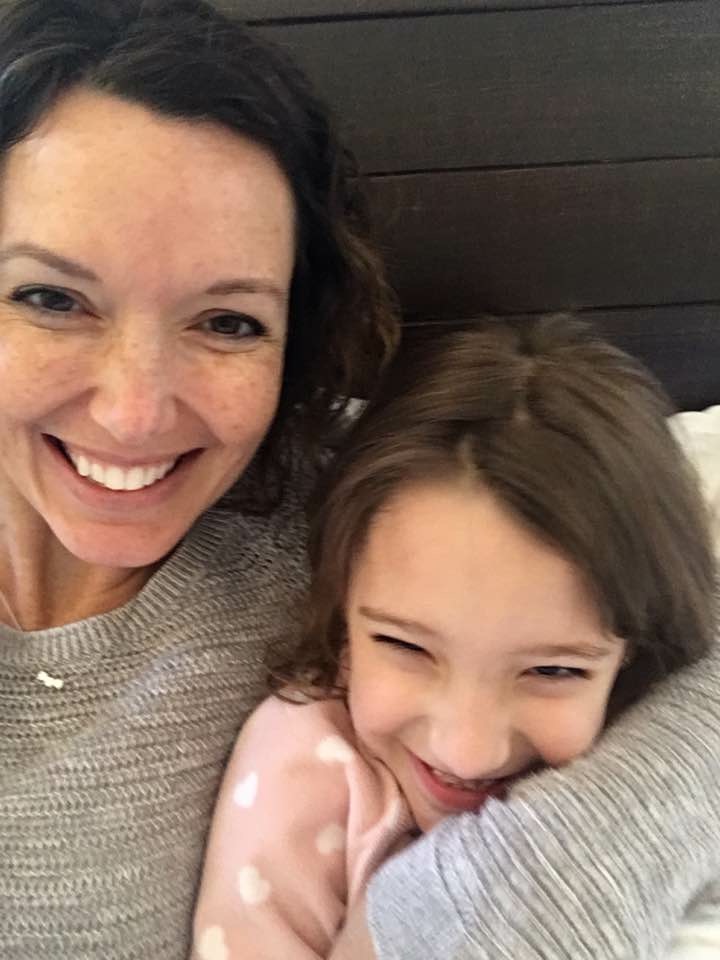ASA Activist Newsletter - June 2017
In the June 2017 Issue:
- CARERS Act Revived in Congress with Added Co-Sponsors
- Safe Access Tennessee Launches Grassroots Patient Groups
- PFC at Forefront of International Standards Development
- California Lobby Day Draws 200 Advocates
- Maryland Program Delays Spur Patient Protest
- ASA Activist Profile: Nichole Miller, Virginia
- ACTION ALERT: Urge your Senators to support CARERS!
______________
CARERS Act Revived in Congress with Added Co-Sponsors
![]() Comprehensive bipartisan, bicameral legislation to harmonize state medical cannabis programs with federal law has again been introduced in the U.S. Congress. The Compassionate Access, Research Expansion, and Respect States Act of 2017 (CARERS) was announced June 15 at a press conference organized by ASA with Senators Cory Booker (D-NJ) and Kirsten Gillibrand (D-NY) and Representative Steve Cohen (D-TN), as well as several affected patients. A similar pair of bills were introduced in the 114th Congress but never received a hearing, despite attracting 19 cosponsors representing 15 states.
Comprehensive bipartisan, bicameral legislation to harmonize state medical cannabis programs with federal law has again been introduced in the U.S. Congress. The Compassionate Access, Research Expansion, and Respect States Act of 2017 (CARERS) was announced June 15 at a press conference organized by ASA with Senators Cory Booker (D-NJ) and Kirsten Gillibrand (D-NY) and Representative Steve Cohen (D-TN), as well as several affected patients. A similar pair of bills were introduced in the 114th Congress but never received a hearing, despite attracting 19 cosponsors representing 15 states.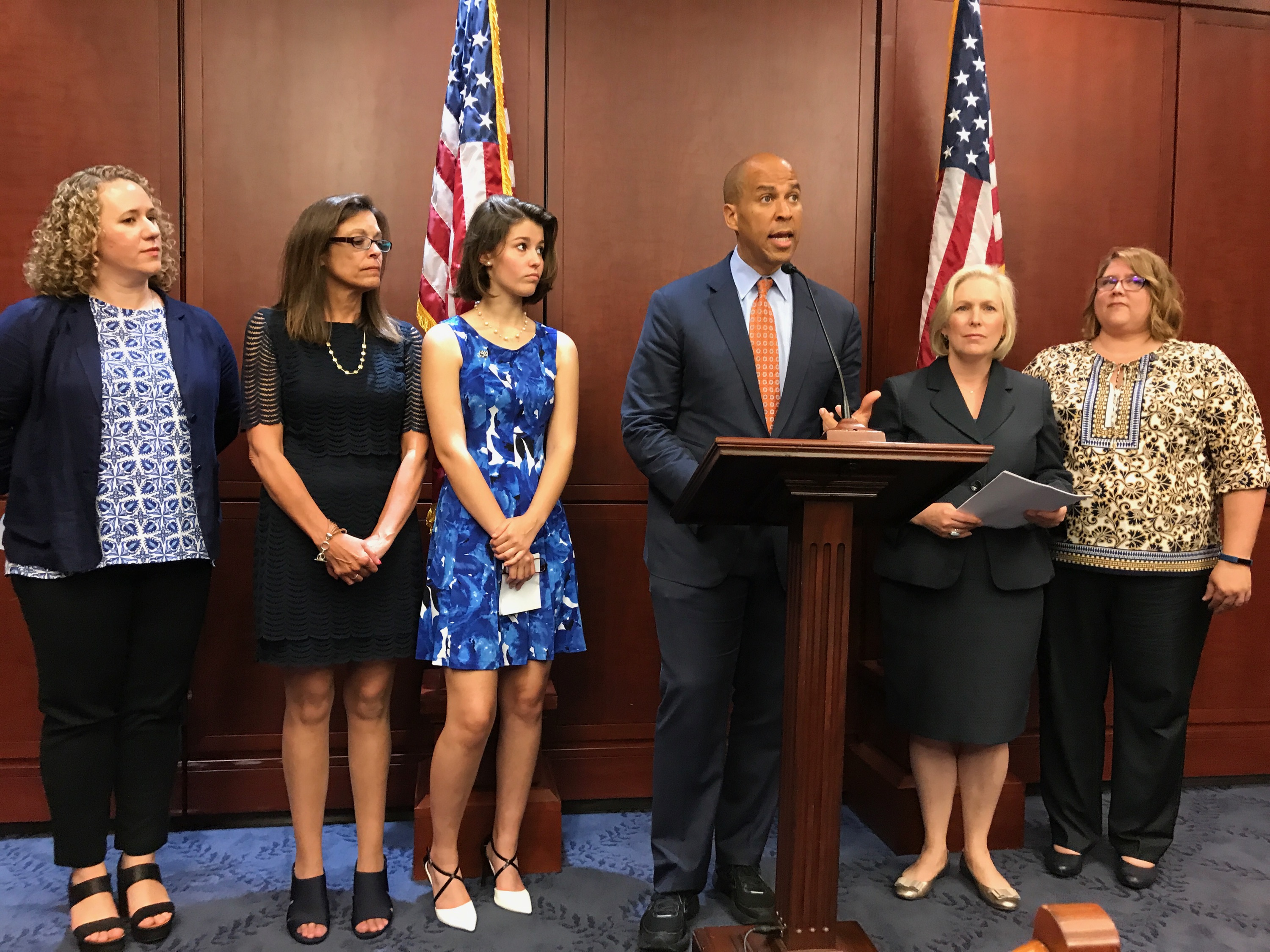
Additional Senate co-sponsors include Rand Paul (R-KY) and Al Franken (D-MN), with the addition for 2017 of Mike Lee (R-UT) and Lisa Murkowski (R-AK). Rep. Don Young (R-AK) returns as an initial cosponsor with Rep. Cohen in the House.
The CARERS Act would reduce the role of the federal government in formulating drug policy and allow states to make determinations on their own medical cannabis policies.
In hopes of gaining additional support, the 2017 version of the bill drops provisions that would have down-scheduled cannabis and allowed state-licensed businesses to use banking services, both of which drew Senate opposition to the last bill.
“Patients need the Senate to pass CARERS so that they have access to the medicine they need,” said ASA Executive Director Steph Sherer. “That’s why we’ve made an easy online tool at https://safeaccess.us/CARERS2017 for advocates to contact their senators today.”
The CARERS Act is not the only pending bipartisan bill seeking to bridge the gulf between federal and state laws. In the House, Reps. Diana DeGette (D-CO) and Mike Coffman (R-CO) last month introduced the Respect States’ and Citizens’ Rights Act of 2017, which would modify the Controlled Substances Act to block federal interference with state law. The bill has been offered each of the last three years.
In the Senate, Dianne Feinstein (D-CA.) and Chuck Grassley (R-IA), leaders of the Senate Caucus on International Narcotics Control, last month introduced the Cannabidiol Research Expansion Act, a bill to support research on cannabis derivatives. Additional cosponsors are Senators Dick Durbin (D-IL), Thom Tillis (R-NC) and Joni Ernst (R-IA).
______________
Safe Access Tennessee Launches Grassroots Patient Groups
 Americans for Safe Access has new membership opportunities for medical cannabis patient advocates in Tennessee.
Americans for Safe Access has new membership opportunities for medical cannabis patient advocates in Tennessee.
A local ASA affiliate, Safe Access Tennessee, is now a full ASA Chapter with a dozen local political action groups spread across the state, including Nashville, Memphis, Chattanooga, and Knoxville. The effort was led by David Hairston, Chairman of Safe Access Tennessee, who was profiled in the May issue of the ASA Activist Newsletter.
“This geographic distribution means 93% of Tennesseans will be within a one hour drive of meeting with fellow patient groups to plan political advocacy and enjoy the benefits of full membership in Americans for Safe Access,” Hairston said.
That advocacy will be focused on getting a medical cannabis bill through the state legislature. State Representative Jeremy Faison (R, 11th District) and Senator Steve Dickerson, MD (R, Nashville) are sponsoring legislation that would create a comprehensive medical cannabis program.
“By giving voice to the sickest citizens of our state, grassroots efforts like this are the key to making medical cannabis accessible to Tennesseans,” said Sen. Dickerson, who is an anesthesiologist.
Sen. Dickerson and Rep. Faison developed the Medical Cannabis Act in consultation with constituents and medical and legal experts, following fact-finding missions to other states.
The bill is being reviewed by a Special Task Force which will meet several times this fall. A vote is expected in the next session of the Tennessee General Assembly in January of 2018.
“We are proud of the work that Safe Access Tennessee has already accomplished and welcome them as a full chapter,” said ASA Executive Director Steph Sherer. “We look forward to working with them and elected officials to ensure that medical cannabis patients have safe and legal access to the medicine that they need.”
______________
PFC at Forefront of International Standards Development
 ASA’s effort to set scientifically sound standards for cannabis safety and quality has found new partners and gone international. ASA’s Patient Focused Certification (PFC) program is now leading the development of international regulatory guidelines, presenting to public health officials and industry stakeholders around the globe, conducting trainings in the US and abroad, and partnering with the University of Maryland’s School of Pharmacy on cannabis education.
ASA’s effort to set scientifically sound standards for cannabis safety and quality has found new partners and gone international. ASA’s Patient Focused Certification (PFC) program is now leading the development of international regulatory guidelines, presenting to public health officials and industry stakeholders around the globe, conducting trainings in the US and abroad, and partnering with the University of Maryland’s School of Pharmacy on cannabis education.
Spearheading the effort is ASA’s chief scientist Jahan Marcu, PhD, in his role as a director of the PFC program. Just this past month, Dr. Marcu has crisscrossed the globe collaborating with doctors, scientists and public health officials from Spain to Israel to Mexico and back, plus conducting trainings in Ohio and Florida.
In Spain, PFC certified the country’s first cannabis distributor, worked with a doctor’s office, and conducted a weeklong training attended by representatives from 10 countries.
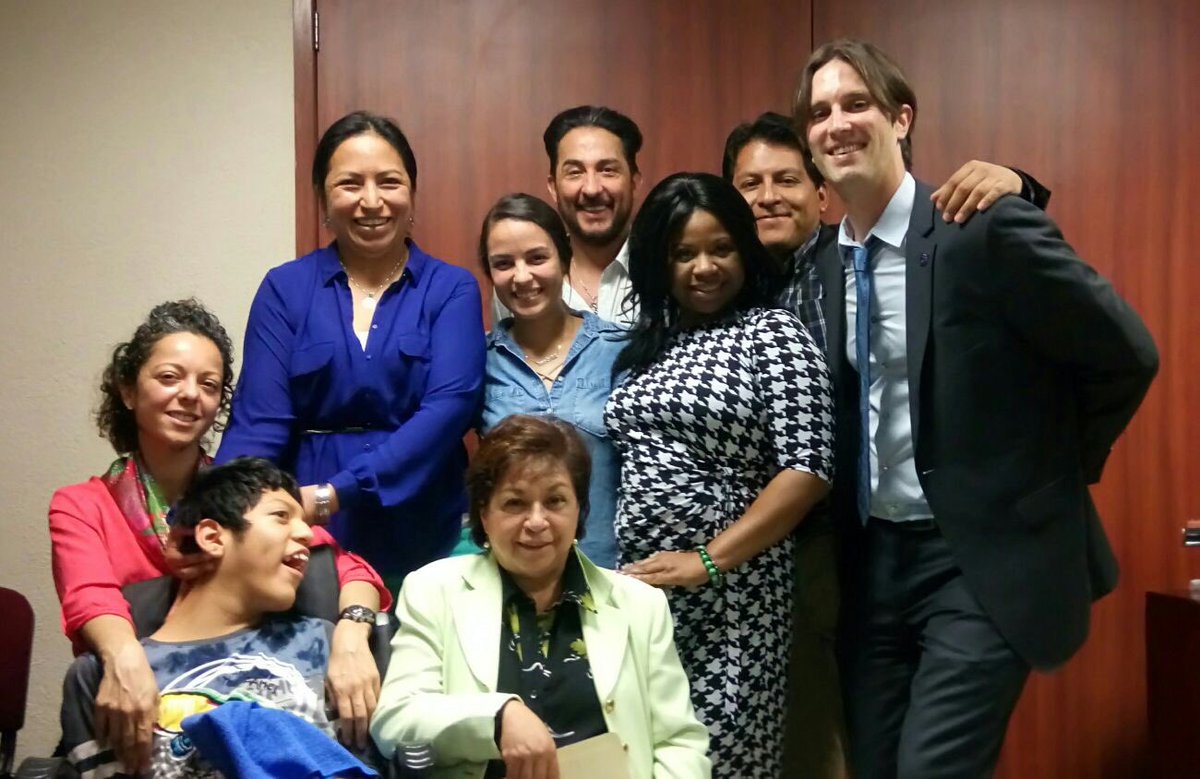 In Mexico, Dr. Marcu (pictured at right with patients and advocates in Mexico City) met with officials from the Department of Health and presented a talk on medical cannabis at the invitation of the national institute of pediatrics. PFC is translating ASA’s educational materials into Spanish and will be training the country’s health officials through the Cannabis Care Certification program on how to draft and implement sound regulation. PFC has also been asked to work with the governor’s office in Mexico City on drafting health and safety guidelines.
In Mexico, Dr. Marcu (pictured at right with patients and advocates in Mexico City) met with officials from the Department of Health and presented a talk on medical cannabis at the invitation of the national institute of pediatrics. PFC is translating ASA’s educational materials into Spanish and will be training the country’s health officials through the Cannabis Care Certification program on how to draft and implement sound regulation. PFC has also been asked to work with the governor’s office in Mexico City on drafting health and safety guidelines.
In Israel, Dr. Marcu made two presentations to Cann10, the second international medical cannabis conference in Tel Aviv. The focus there is on matching cannabis varieties to individual patients based on matching human genetics to plants. PFC’s Cannabis Care Certification will be training physicians in Israel, and manufacturing companies there have applied to PFC for certification.
In the U.S., PFC has been offering webinars and in-person trainings, including a CME event in Orlando, Florida for health care professionals and a training in Ohio. Dr. Marcu was also invited to speak about the PFC program at the American Public Health Laboratory conference last month. He will be speaking about the endocannabinoid system this month at the Cannabis World Congress and Expo in New York and presenting on international cultivation standards this month as part of the annual meeting of the International Cannabinoid Research Society (ICRS), held this year in Montreal, Quebec.
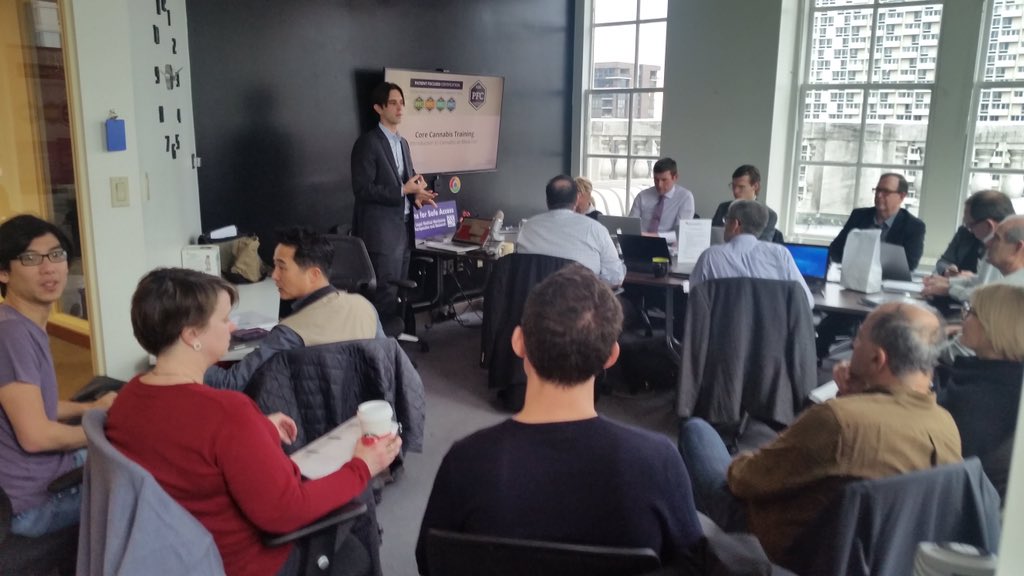 PFC’s role in developing regulatory guidance will be central, as Dr. Marcu is chairing the ASTM subcommittee of 50 experts developing standards for education and training and criteria for regulatory assessment. These standards will determine how the cannabis industry will function – who gets licenses, who gets trained and how.
PFC’s role in developing regulatory guidance will be central, as Dr. Marcu is chairing the ASTM subcommittee of 50 experts developing standards for education and training and criteria for regulatory assessment. These standards will determine how the cannabis industry will function – who gets licenses, who gets trained and how.
PFC’s new partnership with the University of Maryland School of Pharmacy launches next week at PFCtraining.org. This will be the only cannabis training program available through a university online for credit. Going forward, the University of Maryland will be conducting educational trainings, while Dr. Marcu and the PFC staff will handle regulatory issues and compliance.
PFC webinars are being run about every two weeks. Some are free, and those with fees are available to patients on a sliding scale. Interested patients should email PFC ahead of the webinar they’d like to attend.
PFC began with a collaborative effort with the American Herbal Products Association (AHPA) and the American Herbal Pharmacopoeia (AHP), but the international nature of medical cannabis research and development has transformed it into a global project.
______________
California Lobby Day Draws 200 Advocates
![]() On June 5, Americans for Safe Access joined with NORML-California in hosting its annual citizen lobby day in Sacramento. About 200 citizen advocates came from around California to lobby their state representatives on pending medical cannabis legislation.
On June 5, Americans for Safe Access joined with NORML-California in hosting its annual citizen lobby day in Sacramento. About 200 citizen advocates came from around California to lobby their state representatives on pending medical cannabis legislation.
 A morning session included a briefing on the bills, training on effective citizen lobbying and a talk by Assembly Member Reginald Jones-Sawyer of Los Angeles, who was honored for his sponsorship of AB 1578, a bill to prevent state and local law enforcement from assitsting federal agents in targeting individuals who comply with California cannabis laws. AB 1578 had passed the Assembly just days before and is now before the state senate.
A morning session included a briefing on the bills, training on effective citizen lobbying and a talk by Assembly Member Reginald Jones-Sawyer of Los Angeles, who was honored for his sponsorship of AB 1578, a bill to prevent state and local law enforcement from assitsting federal agents in targeting individuals who comply with California cannabis laws. AB 1578 had passed the Assembly just days before and is now before the state senate.
That afternoon, lobby day participants fanned out across capitol offices to meet with elected representatives and staff about employment rights, access to cannabis by pain patients on opioids, and fair taxation and regulation of cannabis.
In addition to AB 1578, two other Assembly bills passed to the Senate. AB 64 would fill gaps in current medical and non-medical regulations, while AB 1410 would allow licensed growers to pay cultivation taxes through distributors.
Lawmakers also heard opposition to AB 62, which would prohibit tobacco smoking in public housing but would also ban cannabis smoking or vaporizing, leaving patients in public housing unable to use their medicine at home.
In the Senate, SB 65 passed unanimously after being amended to address objections by cannabis advocates. That bill seeks to reaffirm infraction penalties for driving while using cannabis (less serious than DUI).
______________
Maryland Program Delays Spur Patient Protest
![]() Delays to the Maryland medical cannabis program prompted dozens of medical cannabis patients and industry advocates, including ASA representatives, to stage a protest last month in front of a Baltimore courthouse, just as an appeals court stepped in. The protest was held as the circuit court was reconsidering a restraining order that had just been issued to prevent the Maryland Medical Cannabis Commission (MMCC) from awarding any further licenses. Minutes before the hearing was to start, the Maryland Court of Appeals issued a stay of the restraining order, allowing the MMCC to resume licensing as the dispute is litigated.
Delays to the Maryland medical cannabis program prompted dozens of medical cannabis patients and industry advocates, including ASA representatives, to stage a protest last month in front of a Baltimore courthouse, just as an appeals court stepped in. The protest was held as the circuit court was reconsidering a restraining order that had just been issued to prevent the Maryland Medical Cannabis Commission (MMCC) from awarding any further licenses. Minutes before the hearing was to start, the Maryland Court of Appeals issued a stay of the restraining order, allowing the MMCC to resume licensing as the dispute is litigated.
To date, the commission has only issued one license to a medical cannabis business, though over 6,500 patients have registered for the program so far. The restraining order stopping the licensing process was issued in response to allegations that the MMCC discriminated against minority-owned businesses. To date, 15 companies have been pre-approved by the state, but none are led by African Americans.
The rally, organized by CANMD, a Maryland wholesale medical cannabis trade association, drew support from patient advocates, including Americans for Safe Access.
“ASA would like to see the diversity of Maryland represented in the medical cannabis industry, but this should be accomplished without delaying the program any further,” said ASA Government Affairs Director Beth Collins. “Patients have waited four years for relief since the legislature approved the program.”
Patients and industry leaders are hopeful that the program will start serving registrants sometime late this summer. The first cultivation license was issued by the MMCC just last month to ForwardGro, which will operate a one-acre greenhouse. ForwardGro is also the first company in Maryland to be certified for cultivation under ASA’s Patient Focused Certification (PFC) program. ForwardGro began working with the PFC program in 2015, when they first applied for a state license. After working with PFC for pre-license certification, during Stage 2 of the application process, ForwardGro gained full PFC certification by demonstrating compliance through a facility inspection with a PFC auditor.
Since 2014, PFC has helped over 50 operations across the U.S. receive and maintain their licenses. PFC is the only nonprofit, third-party certification for the medical cannabis industry based on quality standards issued by the American Herbal Products Association (AHPA) and the American Herbal Pharmacopoeia (AHP). The PFC program provides components for operators, legislators, and regulators to promote the adoption of safe and reasonable industry standards and regulations from seed to consumption.
______________
ASA Activist Profile: Nichole Miller, Virginia
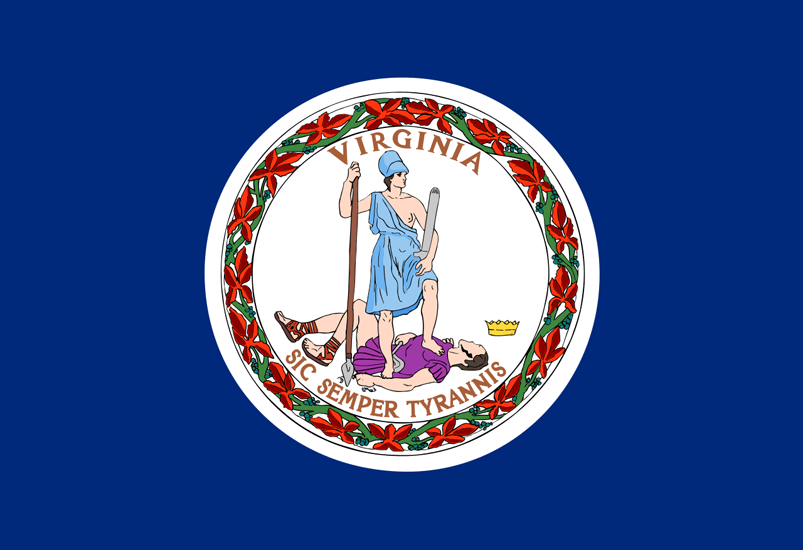 Like many caregivers turned activists, Nichole Miller’s journey to advocacy began with other people’s stories. For Nichole, it was hearing about Paige Figi and her daughter Charlotte, another mother with a young child battling the horrific seizures of Dravet Syndrome who had turned to CBD-rich cannabis extracts when other medications had failed. But Nichole lived in Virginia, not Colorado.
Like many caregivers turned activists, Nichole Miller’s journey to advocacy began with other people’s stories. For Nichole, it was hearing about Paige Figi and her daughter Charlotte, another mother with a young child battling the horrific seizures of Dravet Syndrome who had turned to CBD-rich cannabis extracts when other medications had failed. But Nichole lived in Virginia, not Colorado.
Then in March, 2015, Virginia became one of more than a dozen states to pass highly restrictive medical cannabis laws that nonetheless provide for treatment of intractable pediatric seizures. Other people began asking Nichole if she was using or considering cannabis extracts with her then four-year-old daughter. She would answer, “Yes, if we get to that point.”
Relative to other Dravet kids, Sophia was doing great, only experiencing the violent tonic-clonic seizures every couple of weeks. Plus, Nichole wondered about cannabis side effects and hadn’t yet heard real success stories personally. But with the change in law and questions came the opportunity to look closer at whether cannabis might be a good option for her daughter.
The improvements in cognitive function other families reported seeing in their children after beginning cannabis therapies convinced her.
“With Dravets, there are multiple ways to define success,” Nichole says. “Seizure control, cognitive function, motor skills are each important.”
The turning point for the Miller family was when Sophia started to have a rough spell of chronic infections, with seven bouts of pneumonia in one year. With that, came an intensification of her seizures, which became incredibly difficult to control, requiring lots of benzodiazepine “rescue medication” and Emergency Room visits.
Nichole first obtained some CBD extract in June, 2015 and started Sophia in July at a dose of 0.75 milligrams per pound. The result was no seizures for three months. The CBD oil has reduced her violent convulsive seizures to less serious complex partial seizures which now often stop with the first dose of rescue medication. After starting CBD therapy, Sophia went eight months without an uncontrollable seizure and has remained stable since. But it was the hoped-for cognitive benefits that have been perhaps the most profound.
“Before we started, she had a vocabulary of just 15 to 20 words,” Nichole remembers. “Now, I don’t even count them. She could only manage two-word sentences before. Now they are three to four words, and Sophia can answer abstract questions about stories we read.”
Before, bright light would trigger seizures, so Sophia could never go outdoors without sunglasses. Now, at age six, she doesn’t need them at all.
“Cannabis has been a real miracle for her quality of life,” Nichole says. “And for mine. You want them to play and have fun, but everything she did was a risk.”
Nichole’s activism is focused on what made a difference for her own decision making: her child’s dramatic improvement with cannabis.
“I share our story as much as possible with people we meet,” Nichole says. “I’m not afraid to announce it. The EMTs at our three local fire stations all know our story from coming on calls.”
Nichole also participates in Facebook forums for Dravet parents and lobbies the Virginia legislature. She hopes to see Virginia expand its program soon to allow personal cultivation and dispensaries, so her family and others like hers will no longer have to break the law to obtain their medicine out of state.
“I’ve called my elected officials and spoken with Delegate Farrell in person,” Nichole says. “Our lawmakers seem receptive and have been very polite. They ask specific questions about changes to the state law, how I feel about it.”
Virginia has no provision for qualified patients or caregivers to legally obtain medical cannabis products allowed under the law. She also hopes to see cannabis-derived medications become a first-line treatment for young children, rather than a medicine of last resort. In the meantime, she’ll continue talking about Sophia’s experience.
“It comes up over and over,” she says. “I have to share my story.”
______________
ACTION ALERT: Urge your Senators to support CARERS 2017!
With Attorney General Sessions signaling a return to medical cannabis raids and prosecutions, the time is now for Congress to act.  That’s why your Senators and Representative need to hear from you about the new CARERS Act of 2017 that would respect the rights of states to manage medical cannabis programs for their citizens. Take a minute to urge them to sign on as co-sponsors today.
That’s why your Senators and Representative need to hear from you about the new CARERS Act of 2017 that would respect the rights of states to manage medical cannabis programs for their citizens. Take a minute to urge them to sign on as co-sponsors today.
______________
Share this page
